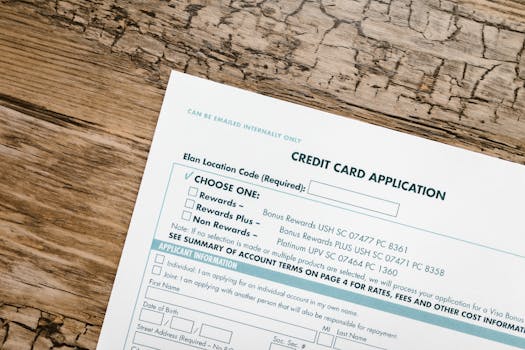Credit Cards
Credit Cards vs Debit Cards: Practical Rules for Everyday Spending
Find out when to use credit cards vs debit cards with clear, actionable tips. Discover how each card type impacts budget, rewards, security, and credit in daily US life.
Advertisement
Swiping your wallet at checkout now comes with choices, and knowing which to grab—credit or debit—can spark a surprising debate. Between those little plastic cards, differences run deeper than you might expect. While many people use both, nuances can affect everything from your bank account to your travel plans.
Choosing the right card for each purchase means more than just tracking balances. It determines protections, rewards, and even how vendors view you. That’s why learning the specifics of credit cards vs debit cards isn’t just financial trivia—it can impact your wallet daily.
If you’ve ever hesitated at the checkout line, wondering which card to pull, you’re in the right place. Dive in for hands-on comparisons, memorable analogies, and step-by-step guidance that help you spend smarter—no matter what your daily routine looks like.
Sorting Out Card Strengths for Everyday Decisions
Expect to walk away able to spot exactly when each card type—credit or debit—gives you the most value, the fastest resolution, or the best backup plan. This section breaks down core features and shows how to match them with real-life scenarios for winning decision-making.
Think of credit and debit as two sides of a toolbelt: credit is your power drill—strong for big jobs, offering rewards and lending backup, while debit is your reliable screwdriver—precise for the basics, directly connected to your own cash.
Immediate Purchase Processing: Debit in Action
When you want total clarity, use debit. The transaction pulls from available funds. You see the withdrawal right away, so there’s no guessing about what’s left to spend. For groceries or bills, debit keeps it clear and simple—nothing gets delayed, and budget tracking is easy as checking your balance that moment.
Imagine standing in line at your local gas station. You swipe your debit card, enter your PIN, and the bank account drops in real-time. No lingering pending charges, no waiting for the transaction to clear. That instant deduction gives you peace of mind for day-to-day expenses.
Using debit gets you in the habit of matching your spending to what you actually have, which helps avoid accidental overdrafts or late fees. For regular routines like morning coffee or recurring gym dues, debit is like handing over exact cash—no future debts to pay off.
Building Credit and Earning Rewards: The Credit Card Advantage
With credit, you get delayed payment—meaning more grace between purchase and money going out. That breathing room lets you manage cash flow while still getting your goods right away. As long as you pay your bill in full, you won’t be charged any interest.
Every purchase can stack up rewards like airline miles, cash back, or shopping points. If you’re strategic and disciplined, using credit builds your credit history while earning bonuses you might otherwise leave on the table. For example, “I’ll pay my monthly bills with credit, collect points, then pay off the balance.”
Credit cards don’t just let you borrow temporarily—they also create a record of reliable payments. Over time, that record helps raise your credit score. Think of this as paving a path for future loans or mortgages: steady usage and on-time payments show you can be trusted with bigger financial tools.
| Feature | Credit Card | Debit Card | Takeaway |
|---|---|---|---|
| Funds Source | Lender/Issuer’s credit line | Your own funds | Credit allows temporary borrowing; debit spends what you have. |
| Fraud Protection | Typically strong; zero liability | Varies by bank; may have limits | Credit card offers robust safeguards for disputed charges. |
| Rewards | Cash back, points, miles | Rare or minimal | Credit is key for bonuses and points collection. |
| Building Credit | Helps establish credit history | No impact on credit file | Use credit for long-term financial growth. |
| Overdraft Risk | Possible if over the limit | Possible if account overdrawn | Both have risk, but debit ties directly to your cash. |
Pinpointing When to Choose Debit Without Risk
Debit cards shine where simplicity and budget clarity are most needed. Reach for debit when you’re doing things like small errands, recurring monthly payments, or withdrawing cash from trusted bank ATMs.
Matching purchases to available funds with debit eliminates any surprise bills. You know your balance and stay within budget, which feels like tracking spending in real-time. Here are rules for maximized safety and accuracy.
Avoiding Overspending: Daily Purchases
Daily coffee runs, groceries, and transport fares are smart debit transactions. Spending directly from your checking account is like using a digital envelope system: what’s available is what you can spend today.
- Pay for quick meals with debit to see an instant deduction. Daily purchases stay transparent, and you’ll catch any unplanned dips in cash flow before they grow.
- Set recurring payments (like subscriptions) to debit to avoid late fees. You’ll never forget a bill, and each charge comes from cash you already have.
- Use debit at local businesses that charge convenience fees for credit cards. You save a few dollars, and vendors get full payment with no added processing cost.
- Withdraw cash from your own bank’s ATMs using debit. No extra fees, and you get instant access to your funds without impacting credit.
- Make purchases at retailers where returns aren’t an issue. Refunds to debit cards process quickly, so you get your money back fast without juggling credit limits.
Debit is best when you want complete control over spending, and there’s little to gain from rewards. It’s peace of mind for anyone who prefers real-time tracking over post-purchase payment planning.
Mitigating Fraud: Safe Debit Card Practices
Debit’s direct connection to your checking means acting quickly if something seems off. If your card is lost, notify your bank right away, and monitor your account for any suspicious charges in real-time. Recovery is smoother the faster you act.
- Set up real-time transaction alerts for every debit card purchase. If something looks unfamiliar, act fast—call your bank or freeze your card in-app for instant peace of mind.
- Avoid using debit cards for online shopping or high-risk transactions. If you must, shop only at trustworthy retailers with secure sites and proven records of customer service.
- Never enter your PIN at standalone ATMs that look tampered with or in dimly-lit locations. Fraudsters love accessible, unattended machines. Trust your instincts—walk away if anything looks odd.
- Store your debit card separately from your main wallet while traveling. If your bag gets lost or stolen, your core financial lifeline remains protected and ready for emergencies.
- Check your account for small test withdrawals—these are red flags for future fraud. If you spot one, report it to your bank immediately and request a replacement card without delay.
Quick action and check-ins keep debit cards safe. Treat every new transaction as a reason to glance at your account, and you’ll always be ahead of potential problems.
Using Credit Cards to Maximize Rewards and Protection
Credit cards unlock security and perks beyond basic transactions. If you want to leverage benefits while reducing risk, a few simple guidelines stack the deck in your favor every time you swipe your credit card.
Piling Up Rewards: Points, Miles, and Cash Back
Sign up for your card’s rewards portal and understand the payback rates for groceries, gas, or travel. For recurring bills that don’t charge extra, switch payments to the credit card and collect the maximum possible points each month. Add a reminder to pay in full before interest adds up.
If a friend asks, “Should I use my credit card for a big electronics purchase?” answer: Yes, if your card offers bonus points and purchase protection. Double-check if accidental damage insurance or an extended warranty applies—those benefits go beyond cash back.
Loyalty programs turn credit cards into multipurpose wallets. Scan every store’s offers for higher reward rates, especially during promos. For example, “Don’t miss triple points for back-to-school shopping this week,” then pay the statement by the due date for free perks.
Shielding Purchases: Built-in Protections
Credit cards are like security guards for your buying power. If the merchant disappears, or that concert ticket turns out to be a scam, dispute the charge with your issuer. Refunds are handled while your money stays safe, pending investigation.
Ready-to-trigger fraud alerts and zero-liability policies offer another layer. If odd transactions pop up, your card company notifies you before any real damage. Most issuers let you freeze the card, then replace it, without being out a dime.
If you’re traveling, many credit cards secure rental cars, hotels, and flights with zero upfront payment. They’re the accepted standard for blocking holds—hotels may not even accept debit. One script: “I’ll use credit to book now, then pay off the full amount at month’s end.”
Practical Scenarios: Deciding Which Card Wins
Every situation calls for tweaking your spending tool. Understanding when to reach for a credit or debit card translates directly to savings, protection, and long-term advantages—just like picking the right gear for a specific job.
Big-Ticket Buys: Play It Safe With Credit
When you’re buying appliances, booking travel, or shopping online, opt for the credit card—purchase protections and dispute resolution are worth their weight. If the item breaks or never arrives, your money’s still safe.
If you plan to buy a new phone, say, “I’ll use my credit card for the bonus warranty; if there’s a problem, my issuer will handle it fast.” That peace of mind turns a major buy from a risk to a reward.
If you spot a suspicious charge, just call your card issuer for an immediate freeze. You’re off the hook for fraudulent spending, which keeps your checking account steady and uninterrupted.
Local and Everyday Shops: Keep It Simple With Debit
When shopping at the farmer’s market or small neighborhood stores, debit cards align with both your and their needs. Local merchants save on processing fees, and you stick to your planned budget every visit.
For quick runs—bagel shops, nail salons, dollar stores—hand over debit. Say, “I’ll stick to what’s in my checking today, keep things clear, and avoid any future bill surprises.” Clarity wins.
Debit makes returns and refunds straightforward, often showing the positive balance right after the transaction. You sidestep credit holds and can confirm the refund by checking your bank app later that day.
Safety Habits for Both Cards: Building a Secure Routine
Combining strong security steps for both card types turns everyday spending into a worry-free process. Commit to these rules, and keep your money and data well protected while using either card with confidence.
Lock Down Your Wallet: Proactive Safeguards
Store cards separately from other IDs. Keep your PIN confidential and don’t lend out either card, no matter how trustworthy friends or family seem. After each transaction, double-check your balance or credit line so nothing gets overlooked.
Enable two-factor authentication wherever possible, especially in banking apps connected to either card. That way, even if someone learns your password, they can’t access your funds without a second device.
Every few weeks, reset your passwords on any online accounts connected to your cards. A rotating security ritual puts you one step ahead of cyber attackers, without needing complex software or technical know-how.
Instant Response: What To Do in Case of Card Loss or Theft
If you lose either card, pull up your bank or card app, and freeze it immediately using the digital toggle. This simple action blocks further transactions, buys you time, and prevents stress—even before the replacement arrives.
Once you’ve locked the card, review recent transactions for anything unfamiliar. If you see something odd, file a report in-app or call your bank/issuer on the spot. Acting within minutes improves the chances of full recovery.
Set a recurring calendar event to check all your accounts for fraud or errors once a week. Quick, regular attention becomes habit-forming—like brushing your teeth or locking your door. Consistent checkups prevent bigger problems.
Adjusting Card Usage Based on Life Changes and Major Events
Choosing between credit cards vs debit cards doesn’t stay static. Big life moves, new jobs, or financial goals—these all mean your card strategy must adapt, just like your wardrobe or car insurance.
New Job or Gig: Rethink Your Daily Routine
With a pay bump or side hustle income, you might qualify for rewards cards or need tighter budget controls. Review your spending pattern and ask, “Does switching more bills to credit for points make sense? Should my lunch budget stay on debit?”
Major transitions like moving or marriage mean old autopay routines need a fresh look. Switch key subscriptions or rent payments to the card that provides better reporting and, if possible, extra fraud protection during life’s busiest weeks.
Changing bank accounts or employers means double-checking which debit or credit cards are linked to direct deposits, payments, and recurring memberships. Update your details to keep everything running smooth and error-free.
Travel, Emergencies, and Unexpected Events
While on the road, rely on credit for hotels, car rentals, and reservations—these businesses typically freeze more than the purchase amount, and debit can tie up your cash. For local dining and souvenirs, use credit for easy fraud disputes.
Debit still has a place: withdraw cash from trusted ATMs as backup or pay minor fares where credit is less accepted. Ensure your bank knows you’ll be traveling to unlock cards for international use and avoid surprise denials.
An emergency vet bill or urgent flight? Reach for credit to cover upfront costs, grant yourself flexibility, and then plan for prompt repayment. Unexpected events favor the card that keeps cash secure while extending temporary relief.
Choosing Wisely: The Everyday Value of Knowing Your Cards
Navigating the credit cards vs debit cards landscape isn’t about labels—it’s about practical steps you take each day. Using each tool appropriately helps you rack up rewards, guard against fraud, and stretch your money further.
Smart usage flows from understanding: debit for budgeting and direct spending; credit for larger purchases, improved protection, and long-term credit health. Over time, thoughtful habits with both types unlock sustainable, low-stress finances.
Next time you reach for a card, remember these tips: match method to moment, act quickly if things go sideways, and check which perks or risks you’d gain. Your wallet—and your future—will thank you.





